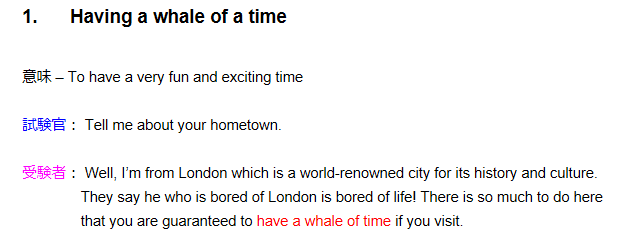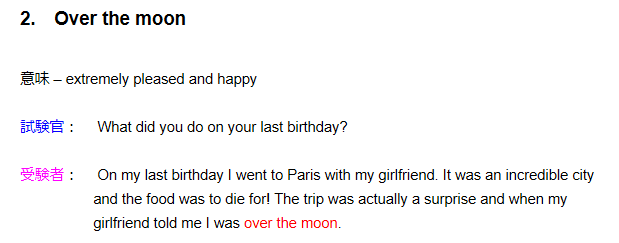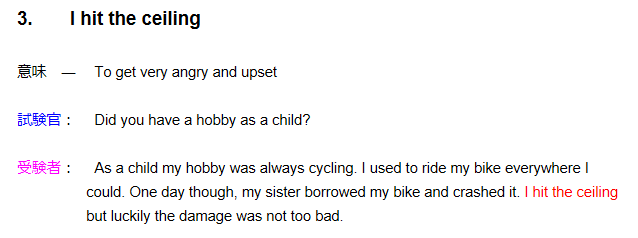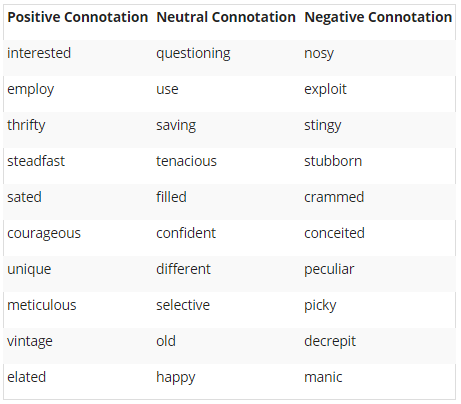IELTS スピーキング Part 3 (The Discussion)

IELTS スピーキングの Part 3 は試験官とのディスカッション形式で行われます。
パート2に関連したトピックについてさらに詳細な説明や自分の意見、提案、
解決策、将来のことなどが聞かれます。
例を挙げて、なるべく詳細に説明することがスコアアップにつながります。
時間は約4-5分程ですが、その時間はほぼ自分が話していると思ってください。
Part3のトピックは、Part 2に関連していますが、Part 3のほうがより一般的で
抽象的なものです。たとえばPart 2が「あなたが経験したこれまでの旅行で一番印象に
残った場所を説明してください」であれば、
Part 3は「旅行の最も大切なことは何ですか」となります。
また、質問のタイプや話の展開の仕方が、ライティングテストのTask 2によく似ています。
Task 2同様、トピックも観光、教育、環境などのような現代の様々な問題を扱います。
┃Part 3 の質問と回答 サンプル
質問: What is the importance of travelling? (自分の意見)
There are several reasons why travel can be a powerful tool for personal development. Traveling can feel empowering when surrounding yourself with people who don’t know the encyclopedia of your past. It reinforces your willingness to broaden your horizons, to get unstuck and to move in new directions. It provides learning and education about places and history and connects us to other cultures and people. Another importance that few people think about is that travelling gives us a chance to face one’s fears of the unknown, which enables us to test ourselves.

質問:What type of places do you recommend people to visit on vacation?
(自分の意見)
Well, it depends. For example, if l have to give advice to a person who is an introvert at heart, which means he or she tends to crave one-on-one conversations, personal time for reflection, and really getting away from it all when they travel. then I would recommend Laos as an acceptably good choice. Laos is a landlocked country with rugged mountains and an enduring favorite of introverted travelers. Travelers can walk through the markets without being overly hassled and feel comfortable dining alone in restaurants while exploring the area.

質問:Do people in your country prefer to travel by car or by train?
(自分の意見)
I’m not sure but I guess they would choose trains over cars. First, for a person who has motion sickness, travelling by train is much more comfortable compared to travelling by car. Second, some people find the rhythmic motion and noise of this mode of transport whilst viewing the changing scenery totally enthralling. It is suitable for a landscape loving type of person. And finally, the most common reason is the economic material benefit. Traveling by train is obviously cheaper.

質問:What are the advantages of travelling with a group of people ?
(自分の意見)
Taking in the sights with a group of people surely has tons of benefits. Safety in numbers is the first one I think of Travelling to unfamiliar destinations can sometimes seem daunting. A group of tourists is less of a target than a single person. Also, if you get sick or hurt, there are people around to help you out. The second one is that it’s cost – effective. Holidaying with a group can help you reduce travel expenses since everyone will be sharing the costs of accommodation, transportation, food, and even tour tickets. It also allows you to take advantage of group rates and discounts.
┃Part 3でよく出題される 質問タイプ

スピーキング「Part3」で質問される内容は以下の7パターンに大きく分類できます。
1 Opinion- 自分の意見
What do you think about ‘this’? Remember to say why you think that way and give examples.
2 Evaluate– 他人の意見と行動
What do you think about someone else’s opinion?
3 Future– 未来
What do you think will happen in the future?
4 Cause and Effect– 原因と結果
What caused ‘this’ and/or what effects has ‘it’ had?
5 Hypothetical– 仮説
Talk about imaginary or unreal situations.
6 Compare and Contrast– 比較
Talk about the difference and/or similarities between two things.
7 Past– 過去
How were things different in the past and how have they changed?























